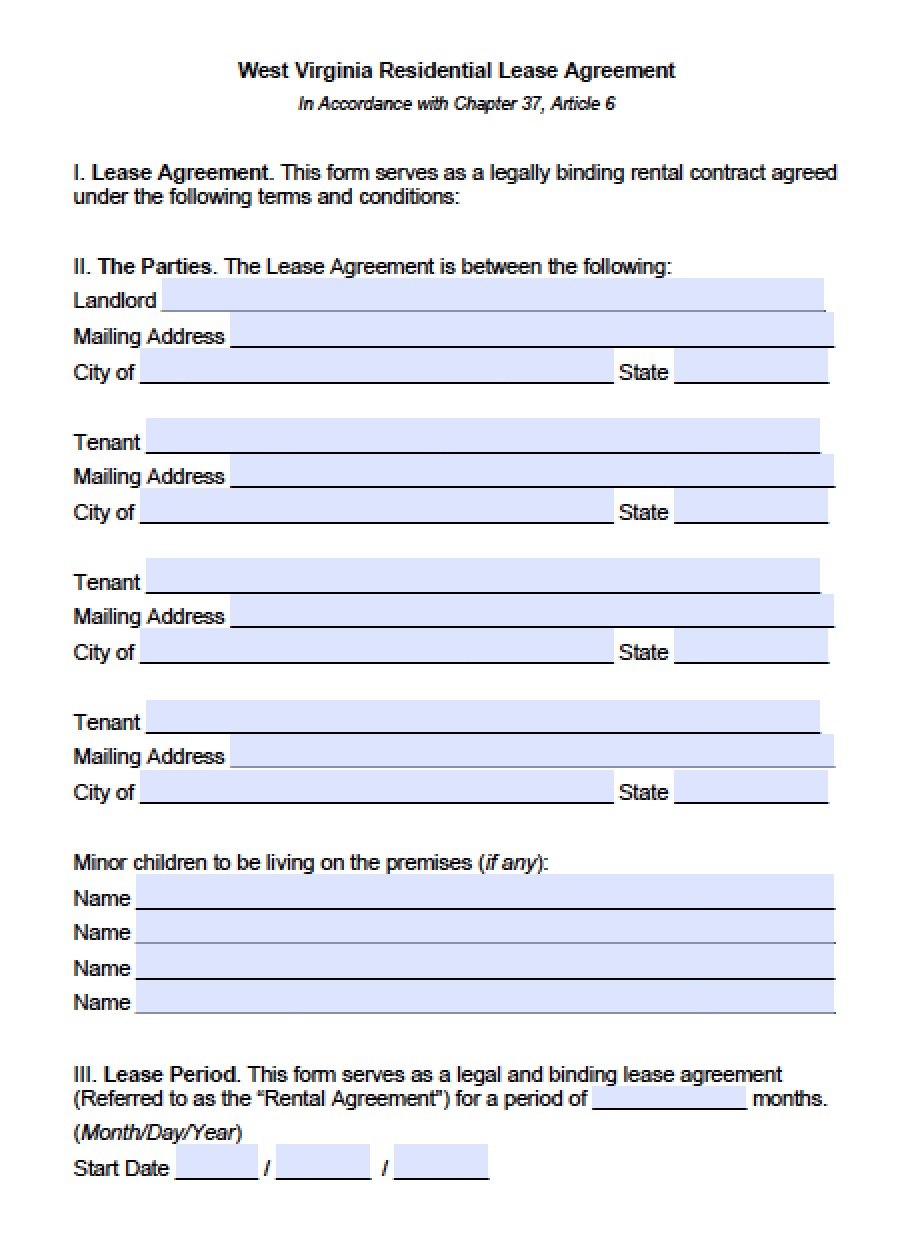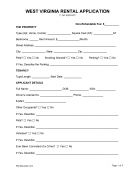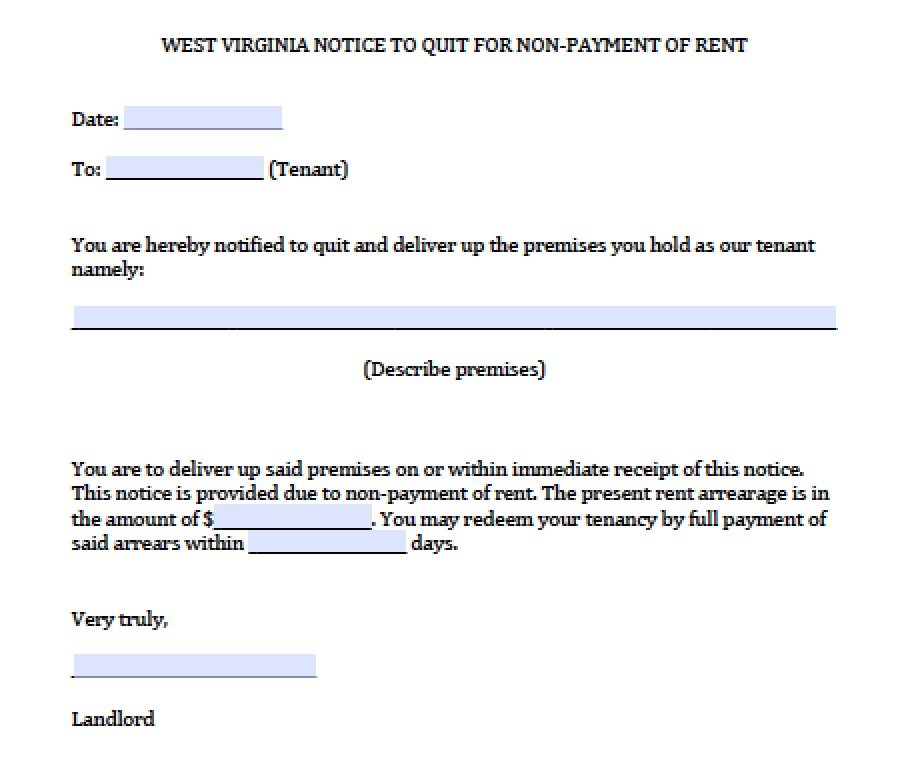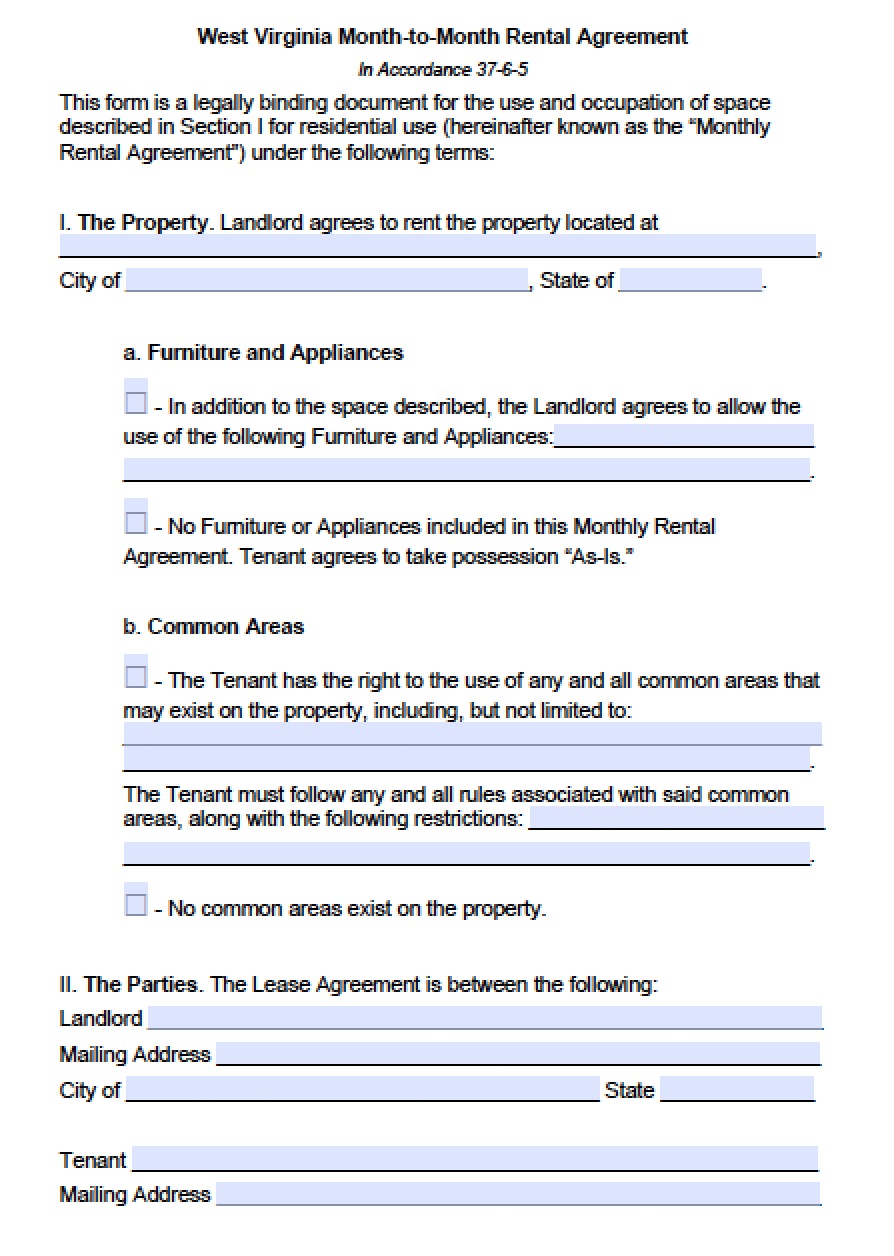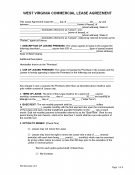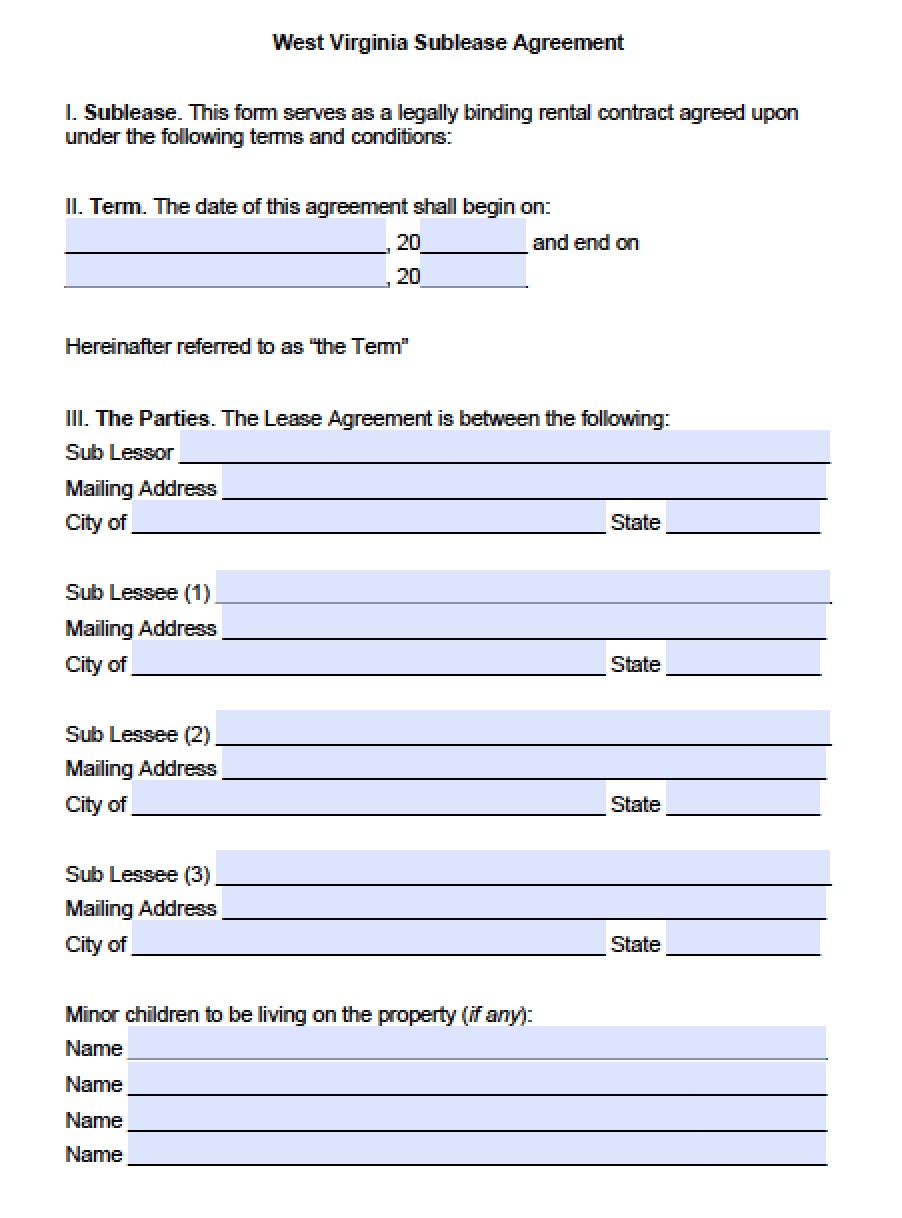The West Virginia lease agreements are provided on this page to help landlords, and even tenants, understand and establish a legal residential or commercial rental arrangement. The list below contains the forms necessary to legally bind a landlord and tenant together in a residential or commercial lease agreement. Some arrangements are more temporary than others, but they are all created in accordance with State law and, therefore, should be filled out with the same laws in mind. In addition to rental agreements, there is a document supplied that will allow a landlord to notify a tenant that they are in default in rent (Notice to Quit) and a document that will help determine if an individual is an eligible tenant (Rental Application). Once these forms are signed by all involved parties, they become legally binding.
West Virginia Rental Lease Agreement Templates | PDF
West Virginia Lease Agreements
The West Virginia standard residential lease agreement is the most common type of rental agreement, allowing a landlord and tenant to establish a fixed-term arrangement that is satisfactory to both parties. This fixed period is typically a year, although the parties may agree on a longer lease term. The lease agreement contains conditions of the rental arrangement such as security deposit, rent amount, penalties for default, and rights and responsibilities of both parties. If the terms seem fair to the…
The West Virginia rental application is a form used to check a prospective tenant’s eligibility with regard to a residential rental property. This document is given to all applicants who are interested in a particular property and, once completed, is delivered to the landlord. An application form contains a wealth of blank fields wherein an applicant fills in their contact information, employment history, rental history, and some pertinent financial information. The landlord is looking for someone who won’t be late…
The West Virginia notice to quit form is the document a landlord can serve a tenant that has failed to pay rent on time. Unlike most states, West Virginia does not require that the landlord give the tenant time to rectify the situation by paying rent; they are simply asked to remove themselves from the premises. Should the landlord wish to have the tenant simply pay the past-due rent, they may say as much in the notice form. If the…
The West Virginia month-to-month lease agreement is a residential agreement, sometimes referred to as a “tenancy at will”, that allows the tenant to rent a piece of property thirty (30) days at a time. This type of arrangement is ideal for short-term renters, tenants who have just completed a standard one (1) year lease, and those who do not know how long they will be at a property, not wanting to be bound by a fixed-term contract. All other terms…
A West Virginia commercial lease agreement establishes a rental arrangement between a property owner, or landlord, and a business (tenant; either an individual or entity). Commercial property means any retail, office, or industrial space used to conduct business in accordance with State law. The landlord and tenant will negotiate the terms of the lease, such as length of the lease, rent amount, responsibilities of utilities and expenses, etc., and will inscribe their signatures at the bottom once they are satisfied…
The West Virginia sublease agreement is used by a tenant (sublessor) who wishes to rent their space, or a part thereof, to another tenant (sublessee). Before presenting this agreement to a prospective sublessee, the tenant should ask their landlord if they will allow a sublease. Once they have obtained approval, they can vet potential sublessees through the use of the rental application template. After an applicant has been selected, the sublessor can present the sublease agreement to the sublessee. The terms…
STATE DISCLOSURES
Lead Paint – Must be delivered to tenant if a residential dwelling was built or improved before January, 1st 1978.
Fees (§ 37-6A-1(14)) – If there is a non-refundable fee as part of the rental arrangement, it must be stated in the agreement or in a written addendum attached separately.
SECURITY DEPOSITS
Maximum – There is no State cap; the landlord may charge the tenant whatever amount they see fit.
Returning (§ 37-6A-1(7)) – The landlord has sixty (60) days to give back all funds associated with the deposit to the tenant unless;
The rental unit was occupied within the time-frame, then the landlord has forty-five (45) days;
The rental unit has a sufficient amount of damage, then the landlord may extend another fifteen (15) days.
LANDLORD'S ACCESS/ENTRY
There is no statute that requires the landlord to give notice to the tenant before entering the property; however, it is common courtesy to give twenty-four (24) hours notice.

